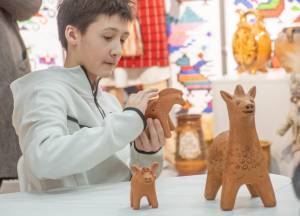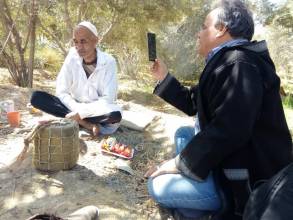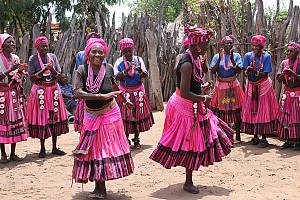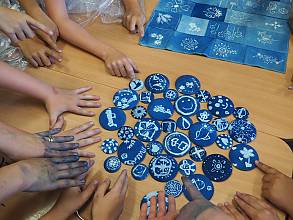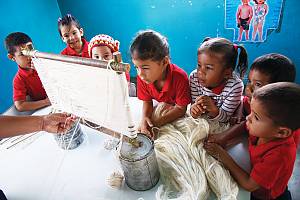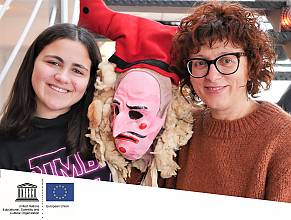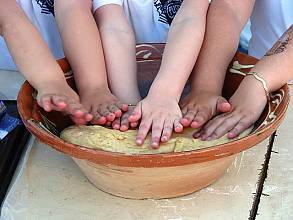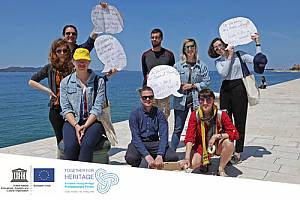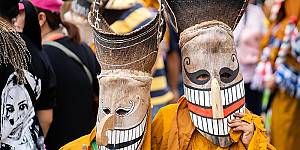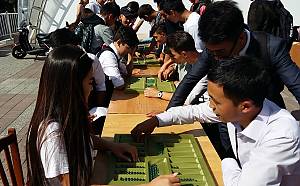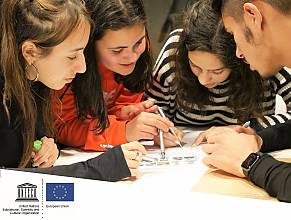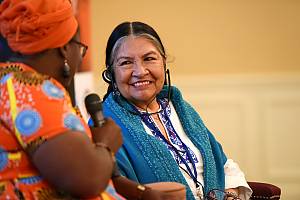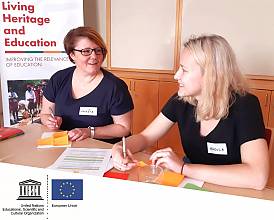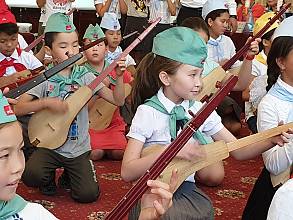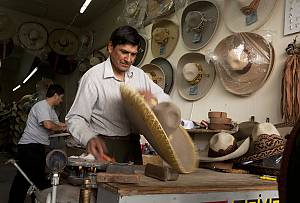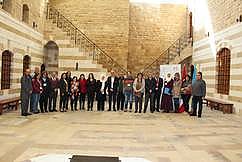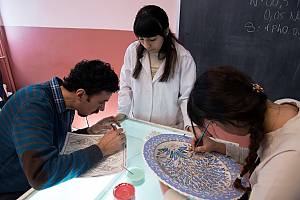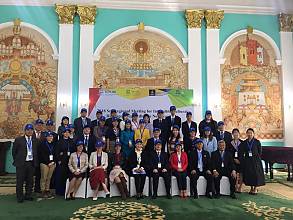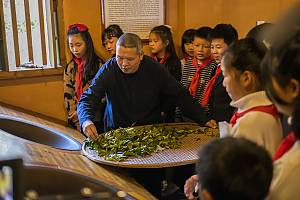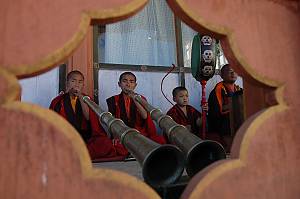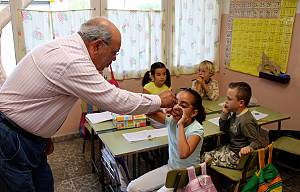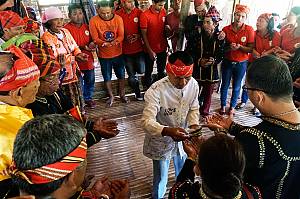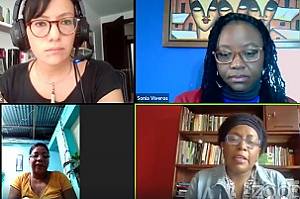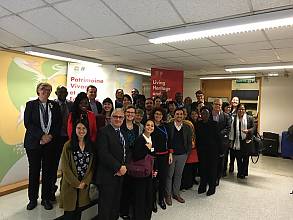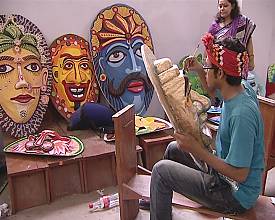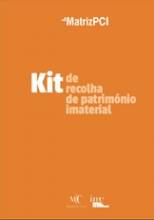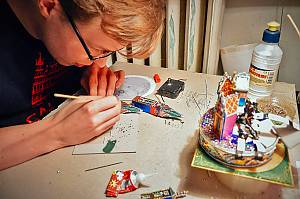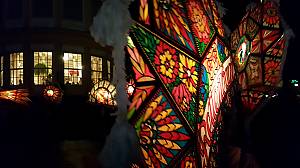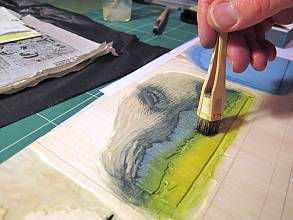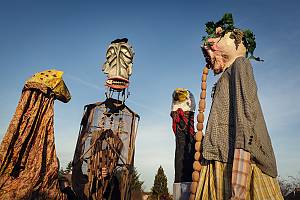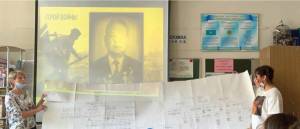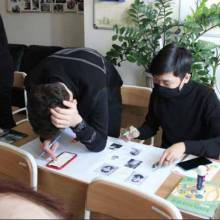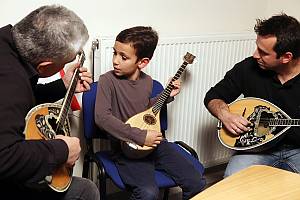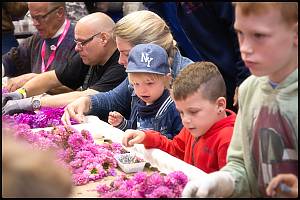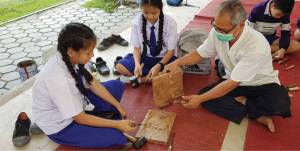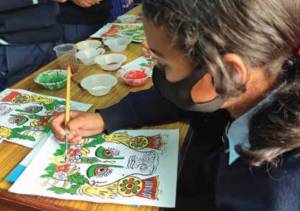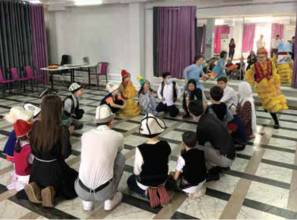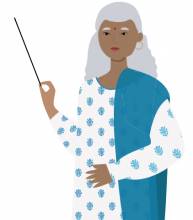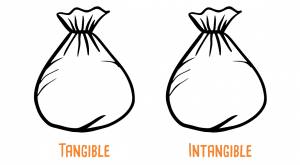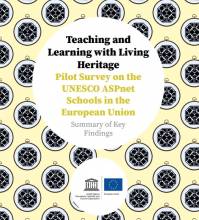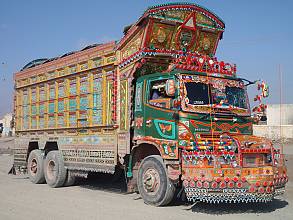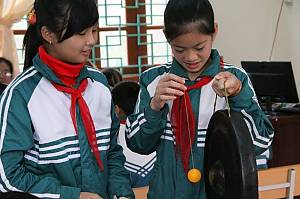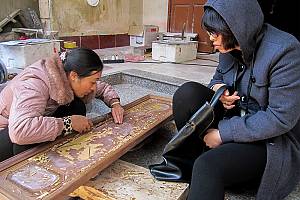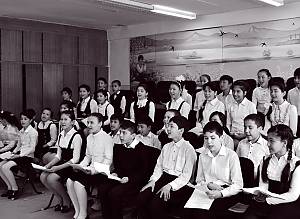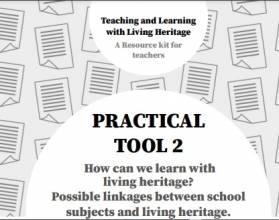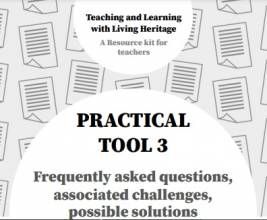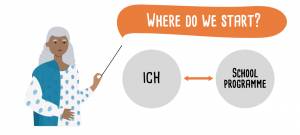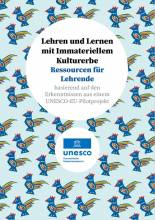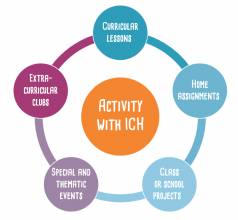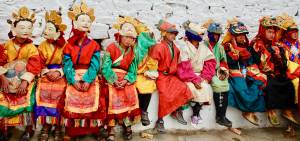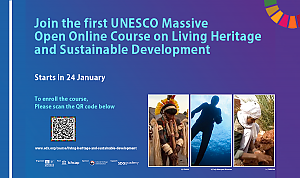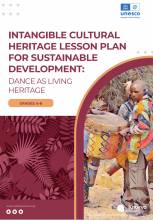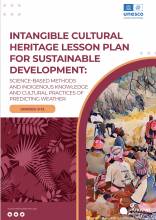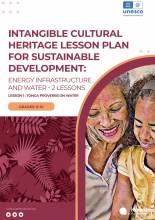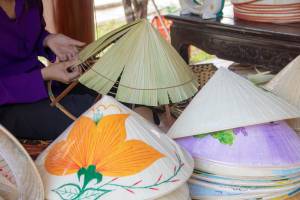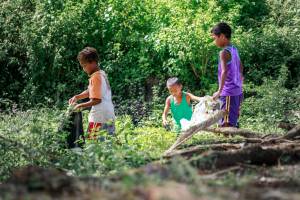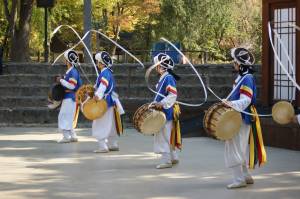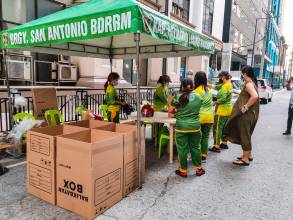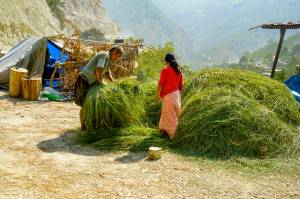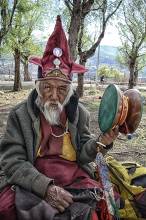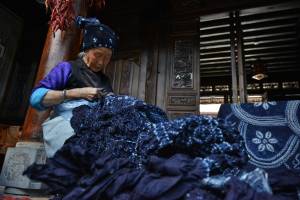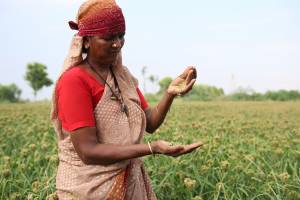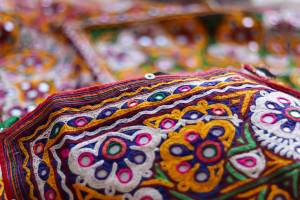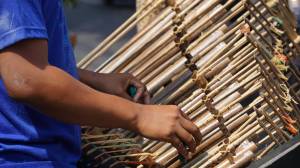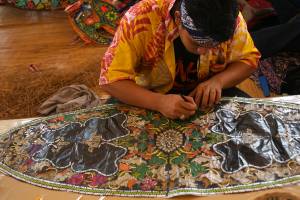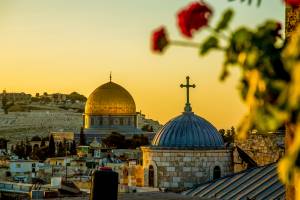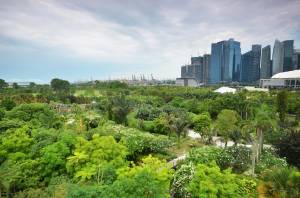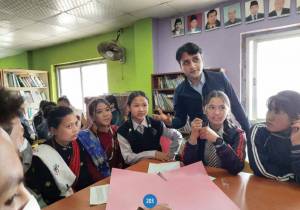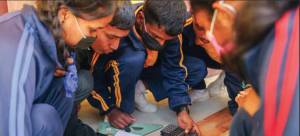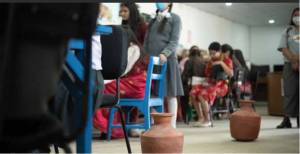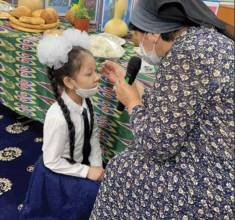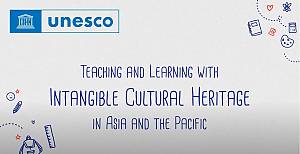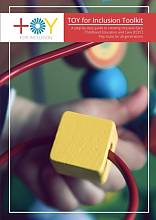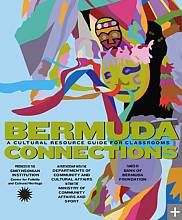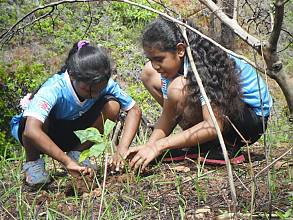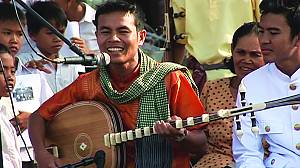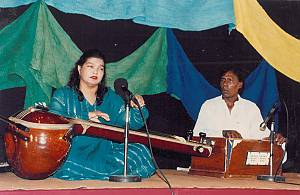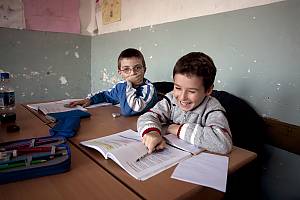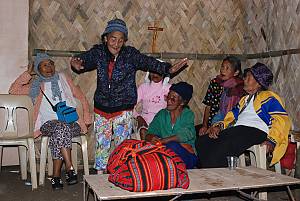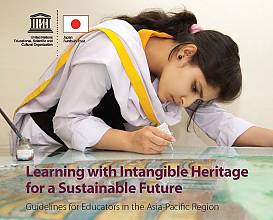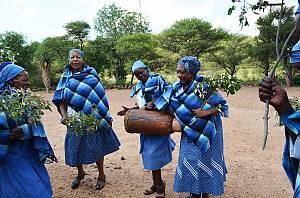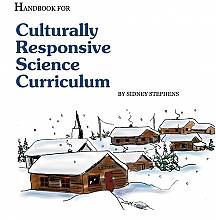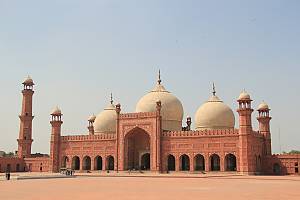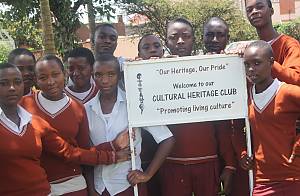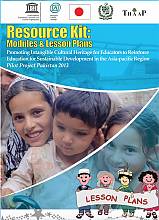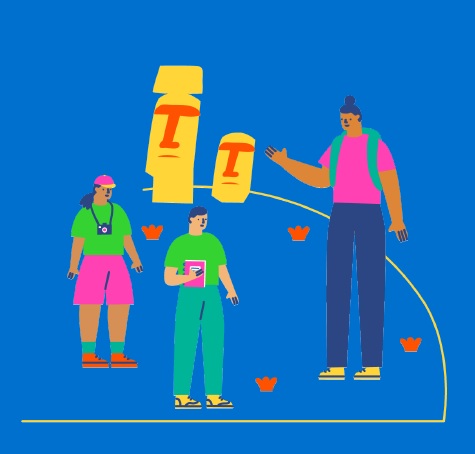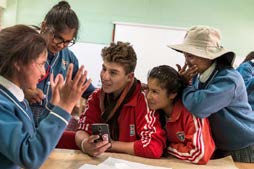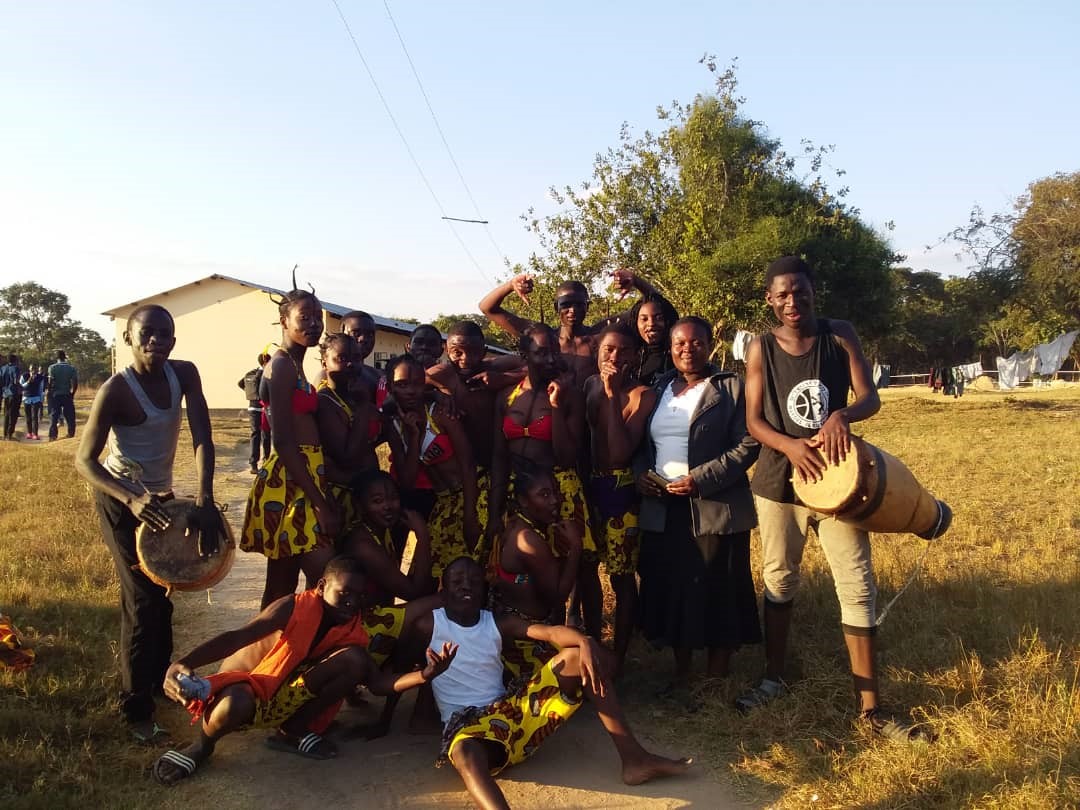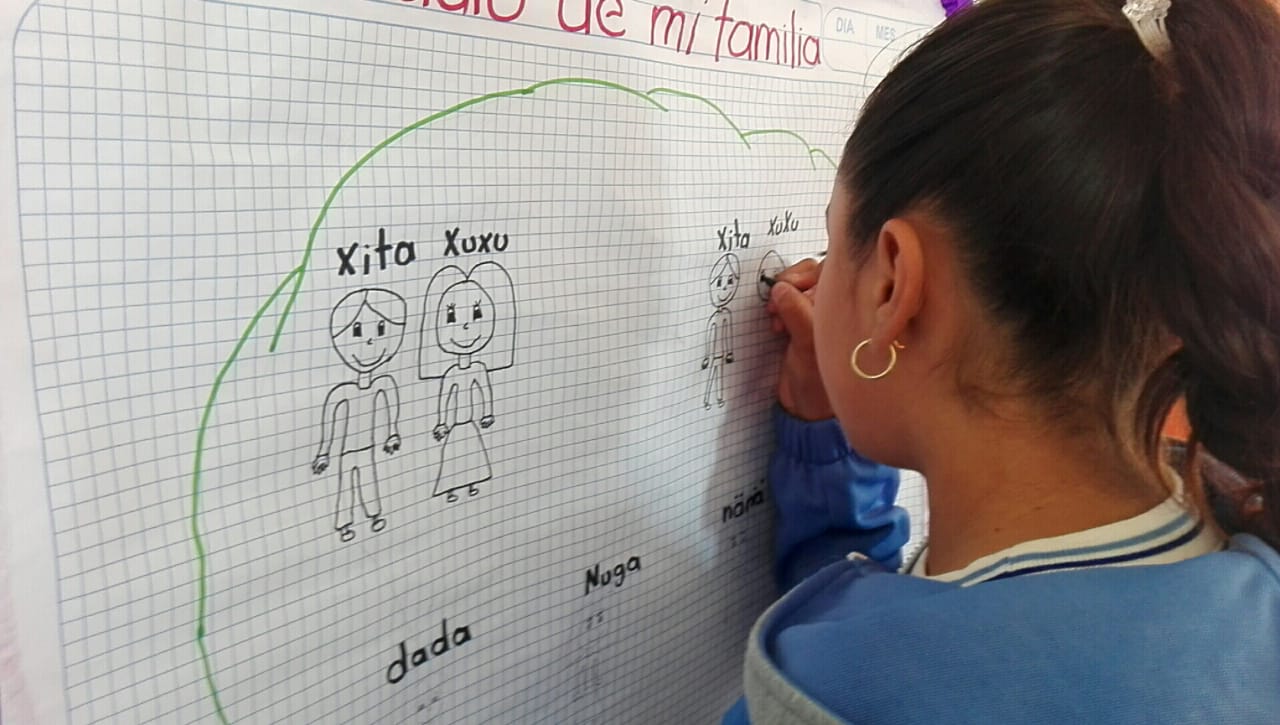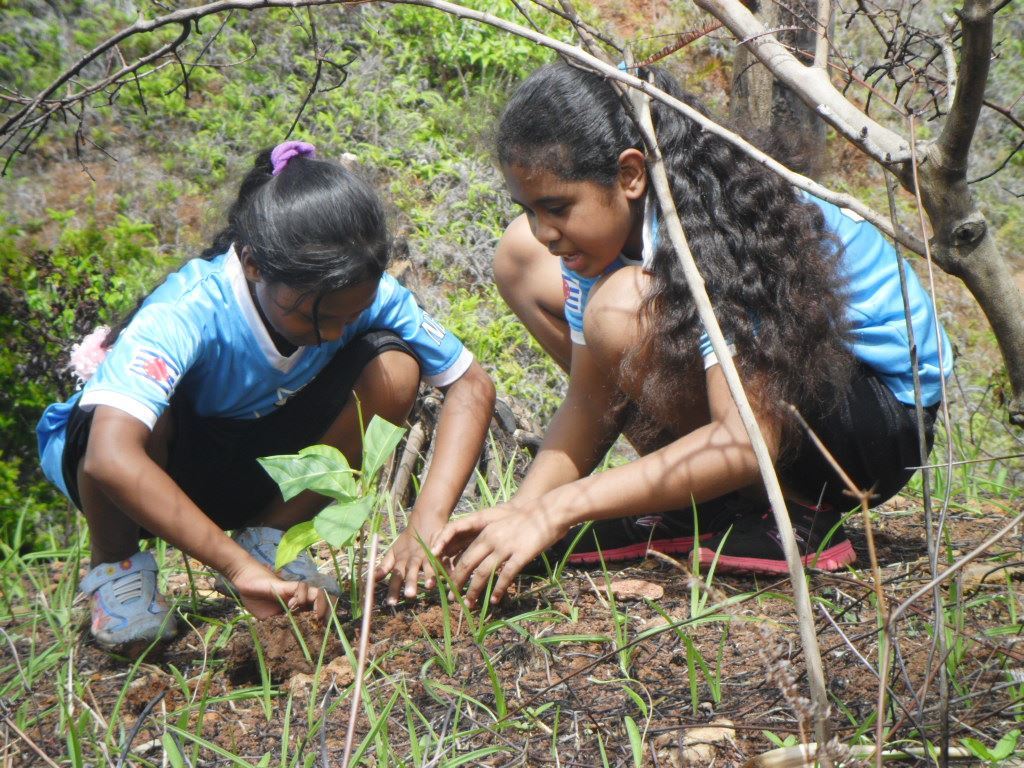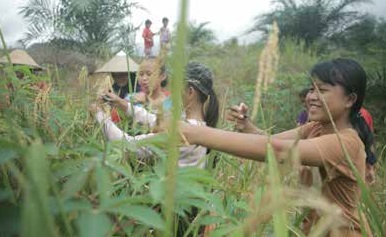Centro de Información de la UNESCO sobre patrimonio vivo y educación
Bienvenidos al Centro de Información de la UNESCO sobre patrimonio vivo y educación. A través de esta plataforma, podrá consultar documentos, estudios de casos e informes sobre los múltiples beneficios de la integración del patrimonio cultural inmaterial en la educación formal y no informal. Más información
-
Noticias (23)
-
Eventos (27)
-
Proyectos (30)
-
Recursos (104)
1 de octubre de 2025
The project ‘Supporting the resilience of Ukrainian school children through enhancing awareness of their living heritage’ is scaling up at the country level, with its second phase officially launched on 16 September 2025.
22 de agosto de 2023
La Oficina de la UNESCO en El Cairo publica la publicación ‘Fortalecimiento de las capacidades nacionales para el inventario del patrimonio cultural inmaterial en la República Árabe de Egipto’
13 de abril de 2023
‘Teaching and learning with living heritage in Ukraine’ is a pilot project implemented with the support of the UNESCO Heritage Emergency Fund.
10 de marzo de 2023
‘Safeguarding Intangible Cultural Heritage in basic education in Namibia and Zimbabwe’ is a project implemented with the support of the Government of Flanders, Belgium.
22 de septiembre de 2021
Para celebrar el 15.o aniversario de la ratificación de la Convención de 2003 por parte de Eslovaquia, el Centro Eslovaco para el Patrimonio Cultural Inmaterial en cooperación con el Instituto Nacional de Cultura y Folclore en Strážnice (Chequia) organizarán un webinario dirigido a docentes de lengua checa y eslovaca el __24 de septiembre de 2021 de 9:00 a 13:00_.
19 de julio de 2021
The first global Online training of trainers course on living heritage and education ended recently. The Living Heritage Entity takes this opportunity to highlight the beneficial relationship between living heritage safeguarding and education.
25 de junio de 2021
A webinar on ‘Teaching and learning with living heritage’ will allow European teachers and students to share their experience on 29 June 2021 from 3 to 5 p.m. (Paris time).
This event concludes the project ‘Engaging Youth for an Inclusive and Sustainable Europe’ implemented jointly by UNESCO and the European Union to raise awareness about the benefits and challenges of teaching and learning with living heritage in primary and secondary schools. Register to follow the event!
2 de junio de 2021
From 31 May to 4 June 2021, the Global ASPnet meeting will bring together teacher education and training institutions represented by deans, teacher educators and student teachers from the UNESCO Associated Schools Network (ASPnet). Tomorrow, an online session dedicated to Living heritage as an enabling force for transformative education is taking place. It aims at highlighting the importance of bringing together safeguarding living heritage and education in achieving Sustainable Development Goal 4 (SDG 4) on quality education. 13 teachers from Asia, Middle East and Europe will share their inspiring insights. Do not miss this great opportunity to learn from experiences on the ground!
20 de abril de 2021
UNESCO welcomes young heritage professionals, students and heritage enthusiasts to join the upcoming open Webinar on European Youth and Heritage being held on 23 April 2021 from 14:00 to 15:30 Paris time, and discover a thriving network of Cultural Heritage Messengers. Online registration here.
4 de marzo de 2021
The UNESCO Bangkok Field Office and the International Information and Networking Centre for Intangible Cultural Heritage (ICHCAP) have jointly published the results of a recent survey on ‘Teaching and learning with and about intangible cultural heritage in Asia and the Pacific’, which provides an overview of different tools for teachers to integrate ICH in schools and several case studies from Asia and the Pacific.
22 de enero de 2021
For several years, UNESCO has been putting a strong emphasis on bringing education and living heritage safeguarding together. In that regard, a webinar will take place on 26 January 2021, 13.00-14.30, Paris time
15 de abril de 2020
«Cuando están motivados, los alumnos consiguen mejores resultados. A través del patrimonio vivo, el aprendizaje se torna más interesante, significativo y motivador para ellos. También se fomenta la adopción de métodos de enseñanza innovadores, que mejoran la relación docente-alumno. Es gratificante mejorar la calidad de la educación y contribuir simultáneamente a algo más grande, como la salvaguardia de nuestro patrimonio vivo». Estas fueron algunas de las conclusiones del taller «Integrating intangible cultural heritage in school-based education. Lessons learnt from the UNESCO-EU pilot project» (Integrando el patrimonio cultural inmaterial en la educación escolar. Enseñanzas del proyecto piloto de la UNESCO y la UE), que tuvo lugar del 27 de febrero al 1 de marzo de 2020 en Rotterdam, organizado por la Comisión de los Países Bajos para la UNESCO y en colaboración con la red de Escuelas Asociadas de la UNESCO (red ASPnet).
27 de febrero de 2020
Entrevista con Tarcila Rivera Zea, Executive Director, Centro de Culturas Indígenas del Perú
25 de octubre de 2019
La incorporación del patrimonio vivo en las escuelas puede hacer que la educación resulte más estimulante, accesible y pertinente tanto para los docentes como para los niños.
16 de agosto de 2019
La nueva prioridad relativa a la salvaguardia del patrimonio cultural inmaterial en la educación formal y no formal está cobrando fuerza gracias a la estrecha colaboración entre el Sector de Cultura y el Sector de Educación de la UNESCO. Muchas oficinas sobre el terreno, en particular la oficina de la UNESCO en Tashkent, han puesto en marcha actividades específicas sobre patrimonio vivo y educación.
24 de junio de 2019
Las partes interesadas en la educación y la cultura de Kazajstán, Kirguistán, Tayikistán y Uzbekistán se han reunido por primera vez para debatir sobre las ventajas de incluir el patrimonio cultural inmaterial en los programas de educación formal e informal y los métodos necesarios a tal fin. La Oficina de la UNESCO en Almaty organizó en Bishkek (Kirguistán) una reunión subregional para Asia Central que se celebró los días 18 y 19 de junio de 2019 y cuyo anfitrión fue la Comisión Nacional de la República Kirguisa para la UNESCO.
5 de abril de 2019
Un nuevo informe publicado por la UNESCO demuestra que la salvaguardia del patrimonio cultural inmaterial a través de la educación y formación técnica y profesional (EFTP) es un tema relevante, pero inexplorado.
28 de enero de 2019
On 18 December 2018, UNESCO Beirut, in partnership with the Lebanese National Commission for UNESCO, launched a pilot project called ‘Learn with the Intangible Cultural Heritage for a sustainable future’ that targets Lebanese public and private schools.
7 de enero de 2019
Under the European Year of Cultural Heritage 2018, UNESCO and the European Union teamed up to develop a new project strengthening the connections between heritage, youth and education.
19 de octubre de 2018
From 29 October to 7 November, 2018 the Intangible Cultural Heritage Section and UNESCO-UNEVOC will co-host a virtual conference on ‘Integrating the safeguarding of intangible cultural heritage (ICH) in technical and vocational education and training (TVET)’.
3 de septiembre de 2018
A sub-regional meeting for ICH safeguarding in Northeast Asia was held in Ulaanbaatar, Mongolia from 28 to 29 August 2018 on ‘ICH in Education: Towards Joint Collaboration for Promoting ICH in Formal and Non-Formal Education’.
10/07/2025 - 10/07/2025
The UNESCO programme on safeguarding intangible cultural heritage in formal and non-formal education has been a key focus under the 2003 Convention, highlighted as a funding priority for the periods 2018-2021 and 2022–2025 (Decisions 12.COM 6 and 16.COM 12). The programme is built on the understanding that living heritage offers a powerful foundation for learning: It enriches education by anchoring content, methods, and meaning in learners’ cultural contexts and promotes the appreciation of cultural diversity and mutual understanding. Aligned with UNESCO’s broader intersectoral action on culture and education, the programme has supported a wide range of initiatives — from policy development to activities that raised awareness on the
02/07/2025 - 03/07/2025
Living heritage offers a powerful foundation for learning. It enriches education by anchoring content, methods, and meaning in learners’ cultural contexts. When education is rooted in culture and heritage, it becomes more relevant, meaningful, and transformative. This connection not only deepens the learning experience but also fosters respect for cultural diversity and strengthens social cohesion. Recognized as a key safeguarding measure, incorporating living heritage into formal and non-formal education also contributes to the recognition, respect, and enhancement of intangible cultural heritage, as outlined in Articles 2 and 14 of the 2003 Convention.
The UNESCO programme on safeguarding intangible cultural heritage in formal and n
21/06/2023 - 23/06/2023
The meeting organized from 21 to 23 June 2023 in Belgrade, Serbia by UNESCO, through its Regional Bureau for Science and Culture in Europe and the Regional Centre for the Safeguarding of Intangible Cultural Heritage in South-Eastern Europe in Sofia, Bulgaria, is generously hosted by the Ministry of Culture of Serbia.
Following up on the previous edition, this year’s session will continue exploring the nexus between intangible cultural heritage and education, with a special focus on secondary/professional/technical and vocational training - TVET and tertiary education across the South-East Europe region.
The meeting is aimed at the 2003 Convention’s Focal Points (or other appointed rep
25/03/2022 - 25/03/2022
UNESCO Bangkok office is co-organizing with ICHCAP a side-event ‘Bringing Living Heritage to the Classroom in Asia-Pacific to Promote Transformative Education’, in the context of the 2022 Asia-Pacific Forum for Sustainable Development, which takes place online on 25 March between 8am and 9 am (Paris time).
If you are interested in following this event, kindly register here.
06/10/2021 - 08/11/2021
Living heritage enriches education by grounding learning in the cultural contexts of learners and their communities, making it more relevant and transformative. Integrating it into formal and non-formal education supports cultural diversity, social cohesion, and the safeguarding of intangible cultural heritage, as outlined in Articles 2 and 14 of the 2003 Convention.
Following the successful completion of the first editionin June and July 2021, the Living Heritage Entity and the Section of Global Citizenship and Peace Education at UNESCO organized the second edition of the online Training of trainers on living heritage and education in the spirit of Sustainable Development Goal 4 “Quality Education”, Target 4.7
24/09/2021 - 24/02/2026
For more information on this event, please visit: https://www.ludovakultura.sk/pozvanka-webinar-zive-dedicstvo-a-vzdelavanie/
08/06/2021 - 09/06/2021
The two-day workshop gathered national teams from four West African countries to create awareness of the immense potential for achieving SDG 4 and safeguarding intangible cultural heritage through the integration of living heritage in formal and non-formal education. At the same time, it built the capacities of relevant stakeholders in Ghana, Liberia, Nigeria and Sierra Leone to develop and implement policies that will support this initiative at all levels of the educational system in the target Member States. In doing so, this activity supports an accelerated achievement of SDG 4.7, and encourage the safeguarding of the living heritage by communities and authorities.
23/04/2021 - 23/04/2021
Webinar: European Youth And Heritage, 23 April 2021, 14:00 to 15:30 (Paris time)
26/01/2021 - 26/01/2021
UNESCO, in collaboration with the International Information and Networking Centre for Intangible Cultural Heritage in Asia-Pacific Region under the Auspices of UNESCO (ICHCAP), will hold an online webinar entitled ‘Monitoring Intangible Heritage in Education
01/12/2020 - 08/12/2020
The expert meeting ‘Safeguarding intangible cultural heritage in formal and non-formal education’ has two main, inter-related objectives: to support periodic reporting to the Convention for the Safeguarding of the Intangible Cultural Heritage by deepening
09/11/2020 - 13/11/2020
This online training of trainers’ workshop focuses on the following topics: Intangible cultural heritage in emergencie, Living heritage and the COVID-19 pandemic, Intangible cultural heritage and sustainable development, Intangible cultural heritage and education
28/10/2020 - 28/10/2020
On 28 October 2020, the UNESCO Office in Quito held an online resiliart debate on the topic of ‘Re (ex) sistence in the face of the crisis: ethno-education, technical and vocational education and training (TVET) and intangible cultural heritage of Afro-descendant communities
27/02/2020 - 01/03/2020
Implemented from January 2019 to July 2020, the UNESCO-EU project Engaging Youth for an Inclusive and Sustainable Europe proposes an innovative approach to education by inviting teachers and learners to explore their living heritage and learn not only about it, but also
26/10/2019 - 29/10/2019
In January 2019, UNESCO and the European Union launched a new project to strengthen the connections between young people, cultural heritage and education. The project proposes an innovative approach to education by inviting teachers and learners to explore living heritage.
07/10/2019 - 08/10/2019
The meeting was organized within the framework of the Convention for the Safeguarding of the Intangible Cultural Heritage and the priority on ‘Safeguarding intangible cultural heritage in formal and non-formal education’.
28/08/2019 - 29/08/2019
A sub-regional meeting for ICH safeguarding in Northeast Asia was held in Ulaanbaatar, Mongolia from 28 to 29 August 2018 on ‘ICH in Education: Towards Joint Collaboration for Promoting ICH in Formal and Non-Formal Education’.
24/06/2019 - 26/06/2019
The 2019 Sub-regional Meeting for ICH Safeguarding in South Asia was held from 24 to 26 June in Dhaka, Bangladesh, to examine the current status of ICH education in South Asia and discuss ways forward.
18/06/2019 - 19/06/2019
For the first time education and culture stakeholders from Kazakhstan, Kyrgyzstan, Tajikistan and Uzbekistan came together to discuss benefits and methods of integrating intangible cultural heritage in formal and non-formal education programmes.
29/10/2018 - 07/11/2018
From 29 October to 7 November, 2018 the Intangible Cultural Heritage Section and UNESCO-UNEVOC co-hosted a virtual conference on ‘Integrating the safeguarding of intangible cultural heritage in technical and vocational education and training’.
26/10/2018 - 26/10/2018
On 26 October, 2018, the Living Heritage Entity, in partnership with the Education Sector at UNESCO Headquarters, held a webinar for the education for sustainable development (ESD) key partners.
17/05/2017 - 19/05/2017
The Intangible Cultural Heritage Section organized an intersectoral meeting on ‘Integrating intangible cultural heritage in education’ from 17 to 19 May 2017 at UNESCO Headquarters,
29/11/2016 - 29/11/2016
Co-organized by the UNESCO Intangible Cultural Heritage Section and the International Institute for Capacity Building in Africa, a roundtable event on ‘Learning with Intangible Cultural Heritage in Education’ took place
21/02/2007 - 23/02/2007
At this meeting specialists and community members shared and discussed concrete practical experiences and insights into how educational efforts can be deployed to strengthen the safeguarding of intangible cultural heritage.
01/06/2021 - 31/12/2025
La educación puede desempeñar un valioso papel en la salvaguardia del patrimonio cultural inmaterial, especialmente hoy en día, cuando la transmisión continuada de muchos sistemas y prácticas de conocimiento está amenazada en África. Los modos y métodos de transmisión reconocidos por las comunidades pueden ser
18/12/2018 - 20/12/2019
El Líbano participó en el proyecto «Patrimonio vivo del Mediterráneo» de 2009 a 2012, que pretendía capacitar a los países mediterráneos para desarrollar proyectos de salvaguardia del patrimonio cultural inmaterial (PCI) al aplicar la Convención de la UNESCO para la Salvaguardia del Patrimonio Cultural Inmaterial
01/11/2018 - 31/12/2022
La Agenda 2030 para el Desarrollo Sostenible y la Agenda 2063 de la Unión Africana proporcionan a África Meridional planes de acción fundamentales para hacer frente a los retos actuales del cambio climático, el dramático crecimiento de la población, los altos niveles de pobreza, la degradación del medio ambiente y el aumento de la pobreza.
01/07/2018 - 01/12/2018
Una de las prioridades en el ámbito del PCI para 2018-2021 es la «Salvaguardia del patrimonio cultural inmaterial en la educación formal y no formal». Como primera respuesta a esta prioridad, la región de Asia Central elaboró una encuesta piloto para identificar los vínculos que ya existían y los puntos en los que se podrían desarrollar más las oportunidades de creación de redes entre los programas de EFTP para reforzar la transmisión del PCI.
01/06/2017 - 01/02/2018
El río Pirá Paraná, situado en la provincia del Vaupés, en el sureste de Colombia, alberga los lugares sagrados de los chamanes jaguares de Yuruparí. Inscritos en la Lista Representativa del Patrimonio Cultural Inmaterial de la Humanidad en 2011, sus conocimientos tradicionales
07/02/2017 - 31/05/2018
La toma de conciencia del escaso número de hablantes de náhuat y del declive de la transmisión intergeneracional en Santo Domingo de Guzmán (El Salvador) llevó a la puesta en marcha de un proyecto que pretende documentar, tanto en náhuat como en español, las tradiciones orales de la región.
22/09/2016 - 29/09/2017
El pueblo lala del distrito de Luano emigró en el siglo XVIII desde la actual República Democrática del Congo hasta sus actuales asentamientos en Zambia. Sus expresiones orales, en particular
30/06/2016 - 16/06/2017
En 2012, el jefe supremo Chikulamayembe (Tumbuka), el jefe supremo Kyungu (Ngonde) y la autoridad tradicional Chadza (Chewa) solicitaron la ayuda de la Comisión Nacional de Malawi
01/05/2016 - 01/07/2017
La Guía para profesores de educación indígena es el resultado de la colaboración entre el Sindicato Nacional de Trabajadores de la Educación (SNTE) y la oficina de la UNESCO en México. El proyecto se llevó a cabo mediante un proceso
01/01/2013 - 25/11/2015
Este proyecto piloto se llevó a cabo en diecisiete escuelas de cuatro países: Pakistán, Palau, Uzbekistán y Vietnam. Su objetivo era desarrollar un marco pedagógico para que los educadores utilizaran el patrimonio cultural inmaterial para concienciar sobre
01/04/2007 - 01/06/2009
El paisaje cultural de Koutammakou, en el noreste de Togo, es famoso por sus casas con torres de barro llamadas «takienta». La tierra está impregnada de significado para los habitantes de Batammariba, cuyos rituales, creencias, artesanía, canciones, deportes
01/02/2016 - 31/12/2021
Sekolah Adat Samabue (Samabue Indigenous School o SAS) es una escuela indígena autofinanciada y gestionada por voluntarios del pueblo indígena Dayak Kanayatn de Menjalin, en la provincia de Kalimantan Occidental, Indonesia. La escuela se fundó en febrero de 2016, después de que la joven
01/01/2019 - 31/12/2019
a Oficina de la UNESCO en El Cairo ha elaborado un kit de herramientas educativas para salvaguardar el patrimonio vivo. Ha sido diseñado como un kit de herramientas educativas prácticas, portátiles e interactivas para formadores y profesores con el fin de integrar el patrimonio cultural inmaterial en la educación en Egipto.
01/01/2018 - 31/12/2021
Entre 2016 y 2017, la Oficina de la UNESCO en Ammán llevó a cabo un inventario piloto del patrimonio cultural inmaterial en Mafraq basado en la comunidad. Esta iniciativa puso de manifiesto la necesidad de desarrollar herramientas prácticas que pudieran utilizarse para apoyar la salvaguardia en el país.
01/01/2016 - 31/12/2021
El kit de herramientas Heritage in a Box es una versión revisada del kit UNESCO World Heritage in Young Hands adaptado por la Oficina de la UNESCO en Pekín y sus colaboradores en el contexto mongol del sitio del Patrimonio Mundial del paisaje cultural del valle del Orkhon.
01/01/2007 - 31/12/2021
La provincia de La Guajira, en la costa norte del Caribe colombiano, alberga el territorio sagrado ancestral del pueblo indígena wayuu. Los wayuu se reparten entre la provincia de La Guajira, en Colombia, y el estado de Zulia, en Venezuela, y son la mayor comunidad indígena de ambos países.

